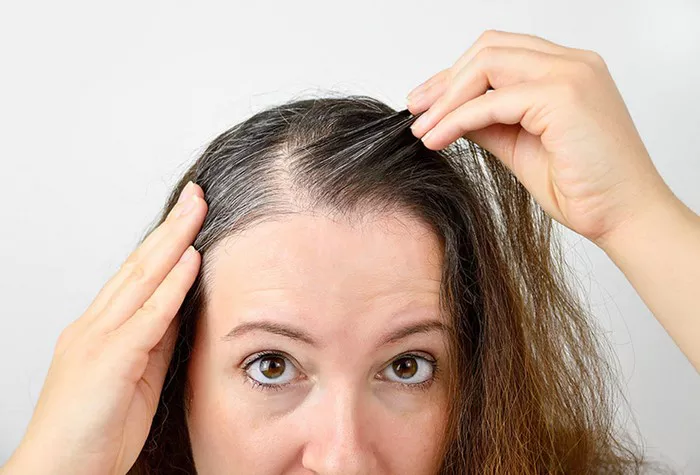In today’s fast-paced world, the prevalence of hair fall has become a significant concern for many. While numerous factors contribute to this issue, one often overlooked and underestimated culprit is nutrient deficiency. In this comprehensive article, we delve into the intricate relationship between hair fall and nutrient deficiencies, shedding light on the essential nutrients that can help maintain luscious locks.
1. Iron – The Building Block of Healthy Hair
The first nutrient deficiency to explore is iron, an essential mineral responsible for the transportation of oxygen throughout our bodies. Iron deficiency, or anemia, can lead to hair fall. When your body lacks adequate iron, it prioritizes essential functions, diverting oxygen away from hair follicles. This can cause hair to weaken and eventually fall out.
Preventing Iron Deficiency
To mitigate the risk of hair fall due to iron deficiency, it’s imperative to maintain a diet rich in iron. Foods such as lean meats, legumes, spinach, and fortified cereals can boost iron intake. Additionally, consult your healthcare provider for iron supplements, if necessary.
2. Vitamin D – The Sunshine Vitamin for Your Hair
Vitamin D is often hailed as the “sunshine vitamin” because it’s synthesized in our skin when exposed to sunlight. This vital nutrient plays a substantial role in hair health. A deficiency in Vitamin D can lead to hair loss and thinning.
Combatting Vitamin D Deficiency
Spend time outdoors to absorb natural sunlight, and consider Vitamin D supplements if you live in areas with limited sun exposure. Incorporating foods like fatty fish, fortified dairy products, and egg yolks into your diet can also elevate your Vitamin D levels, promoting healthy hair growth.
3. Biotin – The Miracle Worker for Hair Growth
Biotin, also known as Vitamin H, is an essential nutrient responsible for strengthening hair and nails. A deficiency in biotin can result in brittle hair and hair loss.
Boosting Biotin Levels
To prevent hair fall associated with biotin deficiency, consider biotin supplements and introduce biotin-rich foods into your diet. These include nuts, eggs, sweet potatoes, and whole grains.
4. Zinc – The Guardian of Healthy Hair Follicles
Zinc is a crucial mineral that aids in hair tissue growth and repair. When there’s a deficiency in zinc, it can lead to hair thinning and hair fall.
Enhancing Zinc Intake
Ensure that your diet includes foods like oysters, lean meats, dairy products, and nuts to maintain healthy zinc levels. Zinc supplements can also be considered if advised by a healthcare professional.
5. Omega-3 Fatty Acids – Nourishment for Your Hair
Omega-3 fatty acids, found in abundance in fatty fish and flaxseeds, are instrumental in maintaining hair health. A deficiency in these fatty acids can result in a dry, flaky scalp and eventual hair fall.
Incorporating Omega-3 Fatty Acids into Your Diet
To combat hair fall due to omega-3 deficiency, include more salmon, mackerel, chia seeds, and walnuts in your meals. Omega-3 supplements can be an option as well.
6. Protein – The Fundamental Building Block of Hair
Protein is the cornerstone of hair structure, as hair is primarily composed of a protein called keratin. Inadequate protein intake can lead to hair that is weak, brittle, and more prone to falling out.
Elevating Protein Intake for Healthier Hair
Incorporate lean meats, fish, dairy products, beans, and legumes into your diet to ensure an adequate supply of protein. A diet rich in protein can help maintain hair strength and reduce the risk of hair fall.
See Also: How to Stop Hair Fall: Effective Tips to Prevent Hair Loss
In conclusion
Hair fall is often a result of nutrient deficiencies that can be managed and prevented through proper dietary choices and, if necessary, supplements. Addressing iron, Vitamin D, biotin, zinc, omega-3 fatty acids, and protein deficiencies can go a long way in promoting healthier, more resilient hair. Remember, consulting with a healthcare professional is crucial to determine the root cause of your hair fall and tailor a suitable treatment plan. By nourishing your body with the right nutrients, you can help your hair regain its natural vitality and luster.


